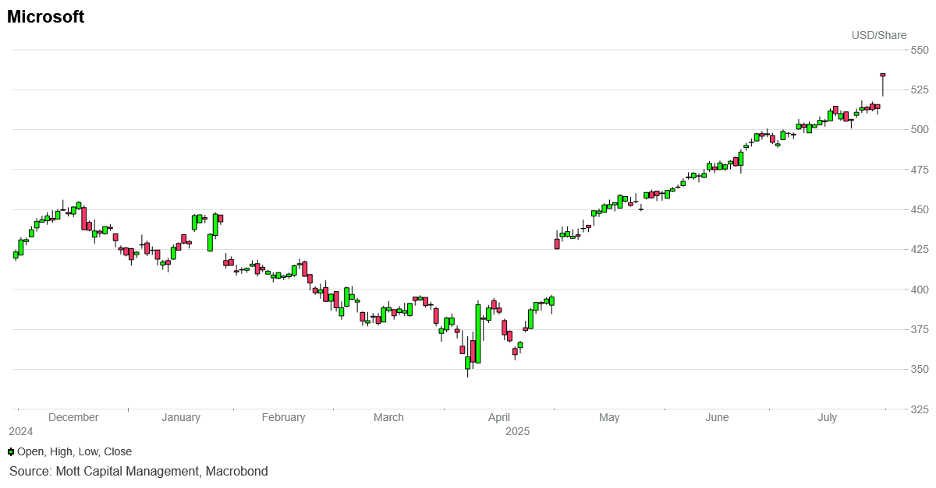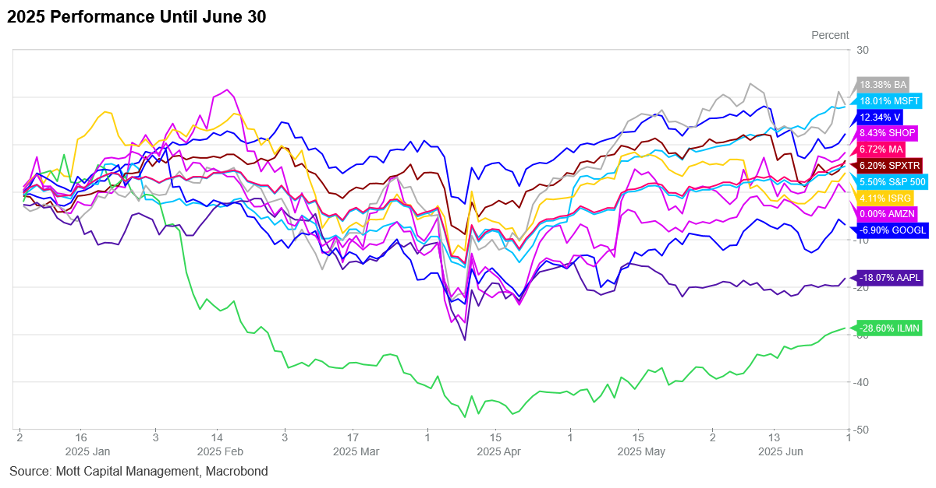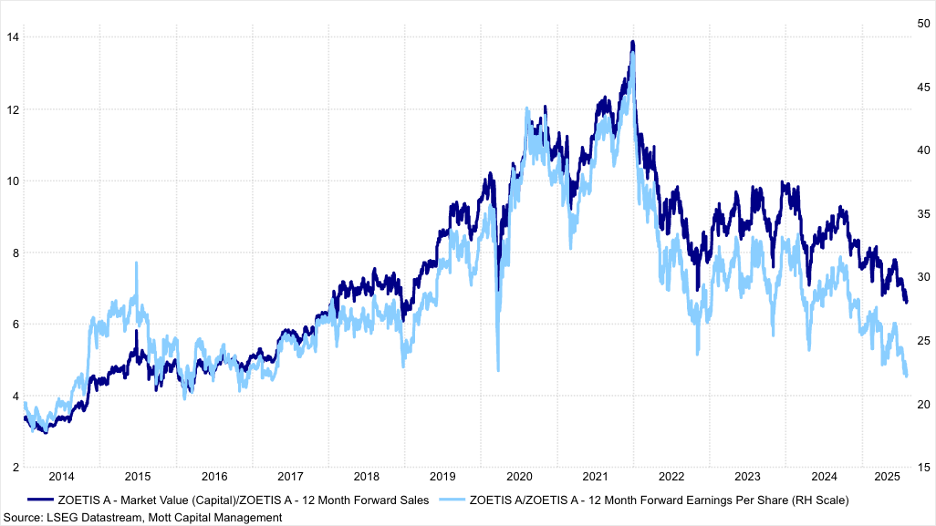United Homes Group stock plunges after Nikki Haley, directors resign
The current market environment isn’t for the faint of heart. Significant drawdowns in the first quarter, followed by substantial rallies in the second, have created one of the most challenging landscapes I’ve encountered in years.
Writing these letters is rarely easy, and this quarter is certainly no exception. In the first quarter, trimming our Microsoft (NASDAQ:MSFT) position appeared to be the right decision. The news at the time suggested caution, and given the stock’s considerable weighting in our portfolio, reducing the position by half seemed prudent. When the market declined sharply in April, I was relieved to have made that call.
But, as fate would have it, the company reported a stunning first quarter, sending its shares soaring. Of course, we still held the stock—just not as much as before—and that weighed on our performance. Microsoft recently posted its second-quarter results, which were also impressive, accompanied by strong forward guidance.

At this stage, I find myself genuinely conflicted about Microsoft, given its valuation and uncertainty about its future returns. On the one hand, I recognize the hype surrounding AI and acknowledge that excitement alone could continue to drive the stock higher.
However, the company’s substantial spending on data centers to support its AI initiatives is concerning. A critical, unanswered question remains whether Microsoft—and indeed the entire AI sector—will ultimately recoup these considerable investments.
AI undoubtedly possesses appealing characteristics, but it also carries significant drawbacks. Moreover, differentiating among the numerous existing models can be a challenging task. Without clear differentiation, I fear AI risks becoming just another commoditized technology over time. At this juncture, I’m closely watching how earnings season unfolds before making any significant decisions, but don’t be surprised if Microsoft is soon removed from our portfolio.
Conversely, the decision to reduce our exposure to Apple (NASDAQ:AAPL) and Intuitive Surgical (NASDAQ:ISRG) currently appears prudent, as both stocks have encountered recent headwinds. Given their significant exposure to China and ongoing trade tensions, these challenges are likely to persist for the foreseeable future.
Our defensive stance has resulted in the Mott Capital Thematic Growth Composite returning just 0.53% through June 30, net of fees and transaction costs, and inclusive of dividends. This compares to the S&P 500 total return index’s gain of 6.2%. This quarter was undeniably frustrating, especially since our cautious approach leading into the March and April downturn initially appeared correct. Predicting the scale and speed of the market’s subsequent rebound proved exceptionally difficult.
On the other side of the decision ledger during the quarter, we redeployed some of our defensive positioning by acquiring Unitedhealth Group (NYSE:UNH) on May 2. Unitedhealth is the largest health insurance company in the United States and recently faced pressure due to disappointing first-quarter results and the resignation of its CEO.
Having tracked this company closely for years, I viewed the investment as a high-risk, high-reward opportunity. Although there’s always a chance the stock could decline further, the expectation is that UnitedHealth will resolve its current challenges, creating significant upside. This situation is reminiscent of our previous experience with Boeing (NYSE:BA), where a turnaround took years but eventually paid off.
Considering the risk-reward balance, the decision felt justified, betting on the idea that UnitedHealth is too significant to fail entirely, and even if dismantled, substantial value would remain.
Additionally, although outside the second quarter timeframe, we added Zoetis (NYSE:ZTS) to the portfolio on July 1. Zoetis specializes in veterinary pharmaceuticals, and pet owners likely recognize many of their products.
The surge in pet ownership during the pandemic has expanded the company’s addressable market, as pets age and require increased medical care, driving higher healthcare costs. Zoetis offers a compelling investment case due to its stable growth trajectory, strong profit margins, and current undervaluation in a market segment that has fallen out of favor, making its shares attractively priced at levels not seen in years.
The second quarter did not unfold as anticipated or planned. Looking ahead, the market will likely face multiple challenges in the year’s second half, and I expect volatility to return. Given the significant shifts occurring in fiscal policy and the ongoing uncertainties surrounding tariffs and their potential impact on global trade.
Although there appears to be a cautious (and perhaps fatigued) “wait and see” sentiment around these issues it seems unlikely that the market’s complacent outlook will persist.
Until next time
